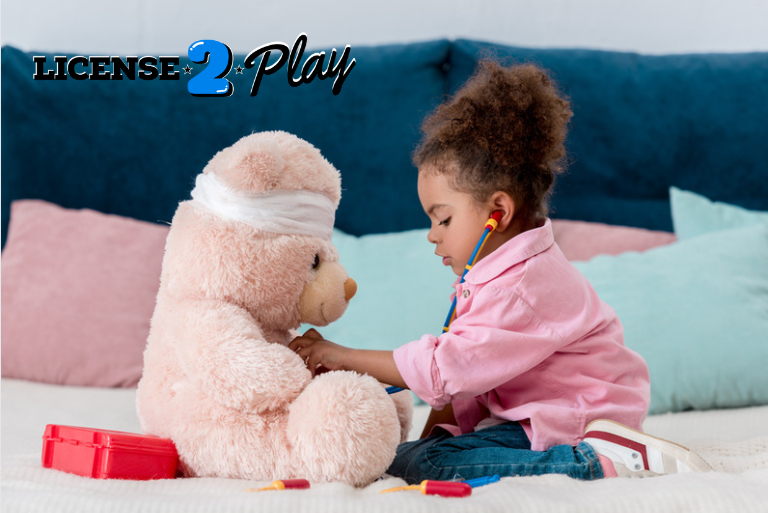
In the world of child development, few things are as magical as watching a child transform into a fearless pirate, a brave astronaut, or a benevolent superhero—all in the comfort of their imagination. This enchanting process, known as pretend or imaginative play, is an endless source of joy and a powerful tool for nurturing essential skills in children. In this blog, we'll delve into the fascinating realm of pretend play and discover how imaginative toys play a pivotal role in shaping a child's growth and development.
The Essence of Pretend Play
Pretend, imaginative, or dramatic play involves children taking on roles and creating scenarios, often using props, costumes, or toys to bring their stories to life. Whether hosting a tea party for stuffed animals, building a cardboard castle, or donning a superhero cape, children naturally and spontaneously engage in this form of play. While it may appear to be all fun and games, pretend play is a powerful vehicle for child development.
1. Cognitive Development
Imaginative play is a cognitive workout for children. It stimulates their creativity, problem-solving skills, and critical thinking abilities. When children construct make-believe scenarios, they have to plan, strategize, and make decisions, which are crucial cognitive skills. Additionally, pretending to be different characters allows them to explore various perspectives and expand their understanding of the world.
2. Emotional Intelligence
Pretend play enables children to explore and express emotions in a safe and controlled environment. They learn to identify and manage their emotions as they take on different roles and navigate imaginary conflicts. This play can help children develop empathy by understanding how others might feel in different situations, promoting better social interactions.
3. Social Skills
Imaginative play often involves cooperation and interaction with peers or family members. Children learn to negotiate, share, take turns, and collaborate while playing make-believe games. These social skills are essential for building relationships and succeeding in a social environment.
4. Language Development
Engaging in imaginative play encourages language development. Children use language to communicate and negotiate with their playmates, describe their roles and scenarios, and engage in storytelling - fostering vocabulary expansion, fluency, and communication skills.
5. Self-Regulation and Confidence
Through pretend play, children learn to regulate their behavior and emotions. They practice self-control as they navigate the boundaries of their imaginary worlds. Additionally, the sense of accomplishment and mastery that comes from creating and sustaining a make-believe scenario can boost a child's confidence and self-esteem.
Imaginative Toys: Tools for Exploration
Imaginative toys are the catalysts for pretend play. These include action figures, dolls, building blocks, costumes, and playsets. The key is to provide children with various toys that encourage open-ended play, allowing them to take on different roles and scenarios. Here are a few examples:
- Dress-up costumes:
These empower children to become anything they can dream of, from a fearless firefighter to a majestic princess.
- Action figures and dolls:
These become the characters in their stories, offering endless opportunities for creative play.
- Building sets:
Construction toys like LEGO or wooden blocks allow children to build their imaginative worlds, whether it's a bustling city or a sprawling castle.
- Puppet theaters:
Puppets let children create and act out stories, giving them a voice in their make-believe adventures.
- Play kitchen and food sets:
These encourage kids to role-play as chefs, fostering creativity and language development.
Pretend play is more than just a delightful pastime for children—it's a crucial aspect of their development. Imaginative toys serve as the gateway to this world of creativity and growth. As parents and caregivers, it's essential to support and encourage pretend play, providing the tools and the space for children to explore their imagination. In doing so, we empower them to become not only imaginative thinkers but also well-rounded individuals with a wealth of skills to carry them through life's adventures. So, let your child's imagination run wild, and watch as they discover the boundless possibilities of the world they create.
